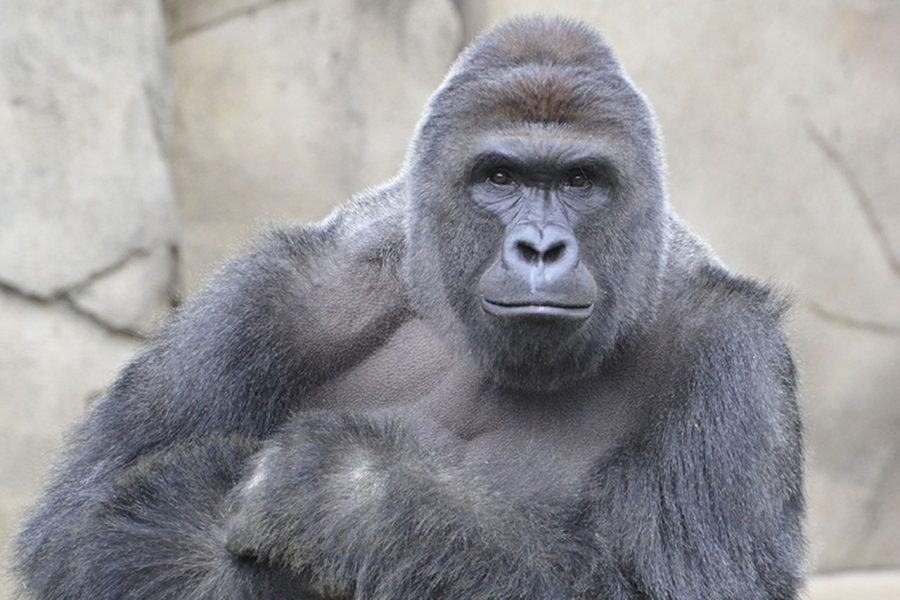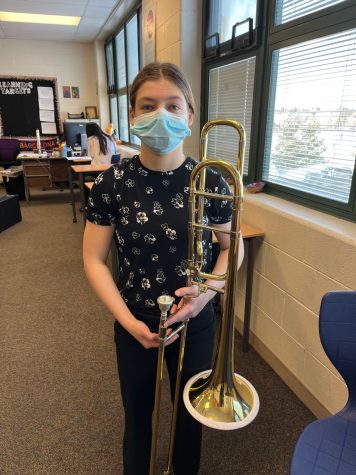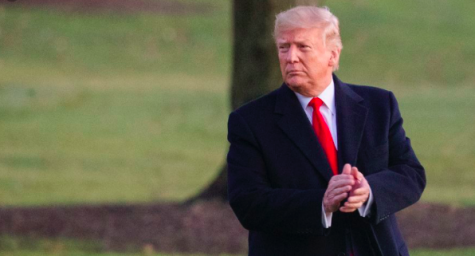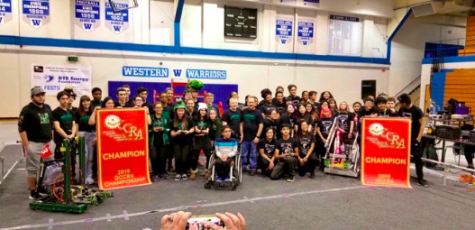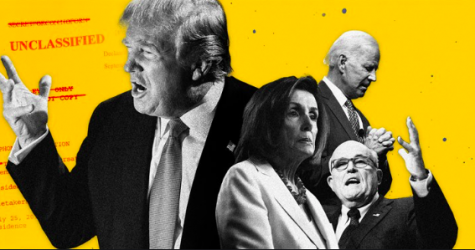Gorilla Gunned Down
The Shooting at the Cincinnati Zoo
June 14, 2016
Recently at the Cincinnati Zoo, a young three-year-old boy fell into the gorilla enclosure. Whether it was because of bad parenting or just a plain accident, this incident was very unfortunate. While this could have happened to anyone, it could definitely have been because of an unwatchful parent, Michelle Gregg, who allowed this to happen. The boy was leaning over to get a better look and, as a result, fell in. But where was the parent during this? She said herself that she was with him, but clearly she was not watching as she did not take action to stop her child from leaning so far over. This parenting error consequently caused the killing the gorilla.
The gorilla was named Harambe and he was widely loved at the zoo. Not only this, but to add to the difficulty of the decision of shooting or tranquilizing him is the fact that his species is endangered. This gorilla was a massive 450 pounds, and he was 17 years old, but had never shown signs of deliberate violence. If this gorilla really wanted to hurt the child, he would have done so immediately when the boy fell into the enclosure. There has been controversy over whether or not the gorilla was protecting the boy or dragging him carelessly through the enclosure. However, after closer physical investigation of the boy, he was found not to have been seriously injured, ruling out the gorilla throwing the child maliciously. This was also the first time since 1978, the year the zoo opened, where a child fell into an enclosure of any kind there. Clearly this is bad parenting.
This situation has the entire Internet engaged in controversy. People are taking every possible side of this situation. There are petitions with hundreds of thousands of signatures looking to get Child Protective Services involved to investigate Michelle Gregg for child neglect. When asked about the mother and if Child Protective Services should get involved, Vaibhav Velagapudi answered, “They should look into the situation, although I believe it was just a brief lapse in judgement that led to the unfortunate events.” Gregg later admitted that she was not watching her child. If this is not bad enough, there’s more. This unwatchful and neglectful parent simply did not care about the gorilla’s death. Once this got out on the Internet, the hate started flooding her. Not only has Gregg been feeling the heat, but so has the Cincinnati Zoo. This has raised the question and topic of whether or not gorillas, or any animals at all, should be held in captivity.
In the past years, there have been several other incidents where animals have been killed for the absolute wrong reason. Cecil was a lion who lived on Hwange Game Reserve and was poached by two men. In Copenhagen, an 18-month-old giraffe named Marius was shot because he was “unsuitable for breeding.” He was then dissected and fed to the lions as food. And now Harambe, shot because of a careless parent. Rei Mizuno shared his opinion about the choice to shoot Harambe saying, “They shouldn’t have used a tranquilizer anyway to get him calm because he might’ve reacted and hurt the kid more.” These are all cases of unnecessary killings, and raise the question even more of holding animals in captivity. Harambe’s death, however, is not because of the boy. The boy did not kill him, making this case slightly different from the others. Of course everyone wanted the boy to be all right, but it unfortunately cost the gorilla his life. This was not the boy’s fault, it was his mother’s.
The killing of Harambe, Cecil, Marius and animals nationwide being killed wrongfully, are extremely deplorable events. Whether it is from poaching, careless parenting, lack of strong genes, or any other reason, no animal should have to be put to death ruthlessly. There are good people in this world and they are relentlessly searching for justice, not just for these animals, but for all. Hopefully one day the human race will realize the horrible things they are doing and change their ways, no longer keeping animals in any kind of captivity.

